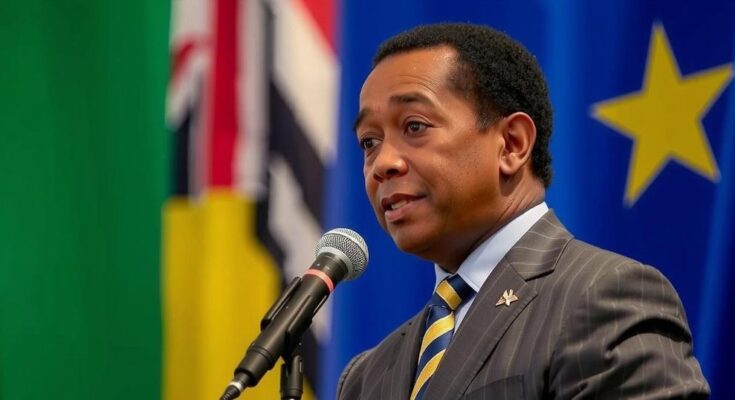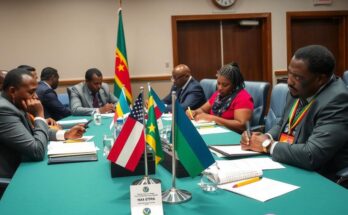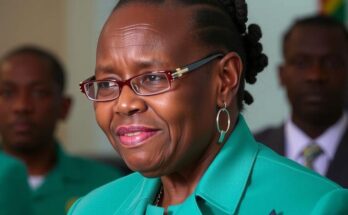In the recent elections, Prime Minister Pravind Jugnauth conceded defeat as opposition leader Navin Ramgoolam’s Alliance of Change appears set to reclaim power. Despite Jugnauth’s previous achievements, concerns about governance and economic challenges have shifted the political landscape, leading to a strong voter turnout of approximately 80%.
On November 10, 2024, the Prime Minister of Mauritius, Pravind Jugnauth, conceded defeat in the general elections, as the opposition party, led by Navin Ramgoolam, appeared poised for victory. While final election results are yet to be published, early indications suggest that Ramgoolam’s Alliance of Change coalition is on the verge of assuming leadership. Jugnauth acknowledged the voters’ choice, stating, “The people have chosen another team to lead the country”. The recent campaign was marred by a wiretapping scandal, yet the atmosphere remained politically charged, with both parties proposing solutions to alleviate the rising cost of living facing Mauritians. Voter turnout was notably strong, estimated at 80%. Historical context reveals that both Jugnauth and Ramgoolam hail from influential political families that have shaped Mauritian politics since independence in 1968. As Prime Minister from 2017, Jugnauth recently celebrated a sovereignty agreement with Britain regarding the Chagos Islands. However, despite this achievement, concerns regarding economic governance have risen, particularly in light of recent scandals. Ramgoolam, who served previously as Prime Minister, expressed hope for victory, articulating that voters are “waiting for this liberation”. The electoral framework of Mauritius includes 62 first-past-the-post seats and an additional eight under a “best loser” system.
Mauritius has maintained a stable democracy and robust economy since gaining independence from British rule in 1968. Characterized by its diverse society and a thriving economy based on sectors like tourism, financial services, and textile production, the island nation has achieved notable economic success with a GDP per capita exceeding $10,000 as of 2022. Nevertheless, political and economic challenges persist, including concerns over governance and corruption. Recent elections reflected a critical moment for the political landscape of Mauritius, with both major political figures, Jugnauth and Ramgoolam, carrying legacies that extend to their respective dynasties. The political discourse leading up to the election was heavily influenced by the rising cost of living and the fallout from a controversial wiretapping scandal, setting the stage for a potentially transformative shift in leadership.
The concession of Prime Minister Pravind Jugnauth marks a significant turning point in Mauritian politics, highlighting the electorate’s desire for change amidst rising economic challenges. As Navin Ramgoolam prepares to assume the prime ministerial role once again, the implications of this electoral outcome may reshape the governance landscape in Mauritius. With looming concerns regarding governance and corruption, both Ramgoolam’s leadership and the effectiveness of his coalition will be scrutinized as they address the pressing issues facing the Mauritian populace.
Original Source: www.seychellesnewsagency.com




